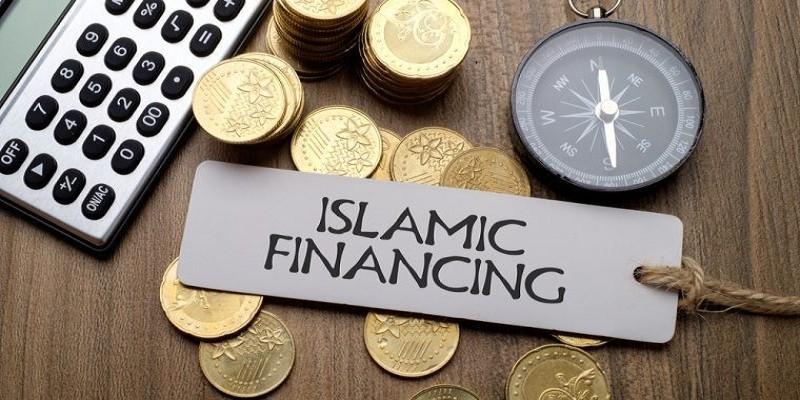Africa-Press – Eswatini. Originally practiced mostly in Muslim nations, Islamic banking has gradually spread throughout the world. One way to describe Islamic finance is as a legal structure for financial transactions that adhere to Shariah law. Because Islamic finance oversees the operation of institutions like banks and investment firms, Islamic banking differs from the traditional financial system.
The ban on Ribah (interest) is the central idea of Islamic banking. Islamic banking also upholds the ban on anything that is in violation of Shariah law. The importance of risk sharing in capital raising is another of the fundamental ideas of Islamic banking.
According to the April 2024 study report of Islamic Finance and Financial Inclusion (AFI members), which Eswatini is a member and formed part of the study, this report provides the presence of Islamic finance in various member countries; with the importance placed on Islamic finance as a complement to conventional banking, the challenges faced in formulating strategies and the regulatory frameworks governing Islamic finance.
Approaches
The findings highlight the diversity and complexity of approaches to Islamic finance within member countries, influenced by factors such as well-established conventional financial systems, lack of awareness and understanding, and implementation challenges. Further awareness, capacity building, research and knowledge sharing are needed to fully evaluate the potential role of Islamic finance for inclusive financial systems.
Overall, the study report serves as a consolidated resource that provides a comprehensive overview of the state of policy frameworks, laws and regulations related to Islamic finance within the respondent member countries, including Eswatini. It informs policy initiatives and promotes collaboration among member countries to further advance financial inclusion through Islamic finance.
The idea of Islamic banking contains much more than the prohibition of interest. It shows that ethics and finance can be connected to serve the society. The idea is to eliminate the banking system of injustice in the society. A clear link with the religion of Islam can lead to mistrust among global citizens, perhaps out of fear of the unknown.
Today’s global society in the Arab world and the Islamic banking system is closer to us and must be embraced just like other Southern African Development Community (SADC) countries have, for example South Africa and Malawi. Attitudes are changing, but slowly, and in recent years, the value of the traditional banking system has begun to look neutral. The question still remains, is Islamic banking important to clarify and explain some of their links to politics, history and religion?
Drawback
Islamic finance offers all the solutions and economic problems of a society. As suggested by Usmani 2005, the main drawback in an interest-based system is that the financier has no concern with money when he or she gives an interest bearing loan to a client. But in an Islamic financial contract, money is not given to the client. First of all, they purchase the commodity and transfer it to client and then all the profit and loss will be distributed between parties according to agreed terms and conditions.
It is alleged that investment in an Islamic financial system is very good for the economy, since the actual failure and the equilibrium are balanced for the benefit of the parties involved, and it is helpful to improve the economy and society.
In Economic Law of Islam, there are some funds methods, such as Musharaka, Murabaha, Ijarah mudaraba and all the details of the case of the treaty, and some agreements in place for sharing profits and losses. This system is based on the sharing of risks between the parties and the burden is not entirely consistent with the parties.
This finance is not only for the Muslim community, but also for non-Muslim because the system only looks at the moral and ethical approach to finance and investment. This finance system is also popular in most communities in Britain. Islamic finance has a number of challenges in Britain because the financial system is attractive to the traditional banking system, yet Islamic banking has great potential.
Recent estimates by the Islamic Development Bank reveal that, on average, around nine per cent of the population in 35 selected Muslim-majority countries voluntarily exclude themselves from the formal financial sector due to religious considerations. In this context, Islamic finance has emerged as a potential tool for promoting financial inclusion, offering alternative financial management mechanisms rooted in Islamic principles.
Embraced
It provides financial instruments and services designed to comply with Shariah principles, which prohibit interest (riba) and promote ethical and socially responsible practices. If Eswatini’s commercial banks embraced Islamic finance, Muslims, who exclude themselves from the conventional banking system, would definitely open bank accounts with different banks, thereby increasing profitability and possibly increase employment and investment opportunities.
Islamic finance follows ethical and socially responsible investment principles, avoiding investments that are seen immoral in society. This aligns with the values of many women who prefer investments that have a positive impact on society and the environment. When we look at this concept, it can be leveraged in ending gender-based violence, which is one of the main contributors to inequality and can be used as a tool to promote women economic empowerment.
Islamic banking offers a unique approach that emphasises fairness, transparency and risk-sharing. It operates without the concept of interest, which Islam prohibits; instead it focuses on profit-sharing and asset-backed transactions. This aligns closely with the values of many people in our society who seek financial solutions that are lucrative, ethical and socially responsible.
For More News And Analysis About Eswatini Follow Africa-Press







